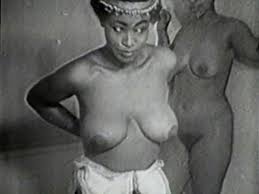Prostitution in South Africa

Foreword
The criminalisation of sex work has not deterred people from selling sex to make a living.
Criminalisation has, however, made prostitution unsafe within South Africa.
It invalidates sex workers’ access to certain basic human rights and exposes them to abuse and exploitation by law enforcement officials, syndicates, and individuals alike.
Although many of South Africa’s lobby groups are grounded in respect for the human rights of sex workers, criminalisation withholds their access to health care, including HIV prevention, treatment, care, and support
History of Prostitution in South Africa

Prostitution in South Africa although still a criminal offence, has historically been viewed as a public nuisance matter and policed in an informal manner over the years. This has over time created a polarizing view on the criminalisation of prostitution.
Colonisation and slavery from the seventeenth century onwards have shaped the sex trade in contrary with the laws which criminalize it.
In 1652 the Dutch East India Company occupied the Cape Colony and established a refreshment station for sailors from the Netherlands and the Dutch East Indies. As time progressed, this grew into a settler colony. The settlers soon started importing slaves from East Africa and Asia.
With the increasing population of sailors there was a natural establishment of the sex trade alongside the growing number of taverns and canteens. It can be noted that there was a substantial imbalance of genders with males far exceeding females. Prostitution provided a tempting opportunity for women and at this time, sex work was seen as somewhat socially acceptable.
The British colonial rule started at the beginning of the 19th century and in 1834 slavery was abolished. Interestingly, during this time, sex work was seen as a casual profession and although it was now an offence, was seldom prosecuted. The government also viewed sex work as inevitable in an established trading port.
In 1864 the Contagious Diseases Act was passed in England and as such, most British colonies adopted identical laws. In South Africa, this act was enacted in 1868 and mandated the registration of sex workers.
This act was blatantly discriminatory and required that sex workers were subjected to regular inspections which would be considered invasive by today’s standards while men were routinely overlooked. Consequently, there was substantial pushback to repeal the Act by women’s groups in England and its colonies.
The Act was primarily enforced by the police which created a tense relationship between them and the sex workers in the Cape. The Act was amended in 1885 whereby lay-inspectors were appointed to mitigate the harassment experienced by the sex workers. The Act was finally repealed in England in 1886 in the face of overwhelming opposition however this did not carry over into the Cape until 1919.
During the Anglo Boer war, many sex workers from Europe entered the Transvaal (Gauteng) and the coastal settlements. Organized syndicates took over much of the sex trade and police corruption and collusion proliferated at this stage and would be common practise to this day to the detriment of sex workers throughout South Africa.
The Immorality Act of 1950 which later became the Sexual Offences Act of 1957, repealed the 1927 Immorality Act and was the dominant legislation that regulated South African sex lives during the apartheid era.
The penalties for prostitution differed between men and women in the 1957 version of the Immorality Act, which penalized women with four years’ imprisonment and men with five years.
Prostitution in Modern South Africa
At the end of apartheid, there was a considerable push to decriminalise sex work in South Africa however it remains criminalised under the 1957 Act. Sex workers are however rarely prosecuted as the legislation is difficult to enforce.
Sex workers are more commonly prosecuted under municipal ordinances and legislation, such as public disturbance regulations. Police also use loitering regulations and other discretionary public disorder ordinances to arrest sex workers.
This practice is consistent with how prostitution has historically been policed in South Africa as a public nuisance violation
In 2002, a Law Commission Paper requested revisions of the Act and proposed decriminalisation and there have been several subsequent efforts in decriminalisation however none have been successful.
Despite public outcry insisting that the policing of prostitution should not be a priority, some police departments continue to police sex workers aggressively.
Sex workers have complained of unlawful detentions and that some police officers ask for sexual favours in exchange for release from detention. Sex workers continue to be subjected to rape and physical assault against to this day.
Conclusion
The history of sex work in South Africa is and has been complex, moulded primarily by socio-economic conditions and multi-cultural norms and remains out of step with the laws of South Africa.
Women and children continue to be subjected to subhuman treatment, abuse and trafficking and there does not seem to be a solution in sight.
Gender-based violence is an injustice that affects women and girls worldwide, with South Africa recording some of the highest rates of sexual violence, globally.
Violence against sex workers, female, transgender, and male is a particular concern, and research shows that up to a half of all sex workers experienced violence in their workplaces.
A legal framework that criminalises sex work has been shown to greatly increase sex workers’ vulnerability to violence and illness, particularly HIV, while reducing the likelihood that abuse will be reported.
Historically, sex workers have been among South Africa’s most marginalised populations, and are vulnerable to exploitation, abuse, and ill health.
The decriminalisation of sex work and the implementation of a rights-based approach to aspects of sex work will not only make prostitution safer but will also reduce levels of gender-based violence and have a positive impact on society.

